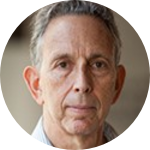About
I'm a nuclear medicine physician at Albert Einstein College of Medicine in NYC. Before medicine I obtained an M.S. in nuclear physics from U. of Pennsylvania. My work in nuclear medicine has often required PET (positron emission tomography) scans in patients with cancer, using 18F-fluorodeoxyglucose (FDG), a radiotracer taken up in cells which use glucose (including cancers).
I was fascinated with the "Warburg effect" in medical school-- ie that many cancers require anaerobic glucose metabolism--glycolysis--even in a normal oxygen environment. This glycolysis dependence is the basis of PET FDG scanning in cancers. It also provides a clue to understand why carbohydrate restriction can metabolically inhibit cancer growth, (though not simply because glucose in the blood is reduced; rather because low insulin and high ketone bodies interfere with glucose metabolism in cancer cells!!) In 2003 I started examining ketogenic diets. These diets, then largely ignored, were actually quite helpful for many people with obesity, diabetes and lipid disorders. It occurred to me that ketosis, which represents maximum insulin inhibition, could also inhibit cancer growth. Mice and cell culture studies from 30 years ago had suggested this. Reading more papers then helped me arrive at a consistent and highly plausible biochemical hypothesis.
I've worked with my colleague Richard Feinman since that time and we've now accumulated cell culture data which describe a distinct metabolic mechanism where ketone bodies inhibit cancer growth, leaving normal tissues unaffected. We showed preliminary proof of this hypothesis in 7 cancer cell lines as well as in a pilot ketogenic diet study in 10 patients with aggressive cancers. In cells (and people) ketosis was well tolerated by normal tissues and correlated with better outcomes.
I find this line of research quite exciting as it suggests less toxic, yet more effective future cancer therapies.
Joined
January 2015

